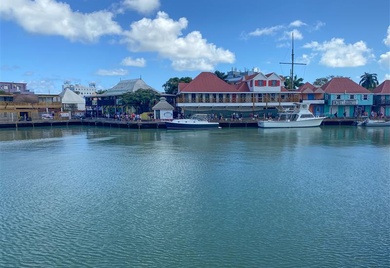Calling Private Investors: Four Opportunities to Scale Impact in the Amazon Region

Amazonia is reaching an ecological tipping point, and decisive actions are needed to scale up its positive impact. As the planet's lung and home of the most biodiverse forest, this region presents unique challenges and investment opportunities for fostering sustainable economic growth and protecting ecosystems.
The private sector can play a crucial role with the right approach. Based on an analysis carried out by IDB Invest, this blog post explores four opportunities to maximize private sector impact in Amazonia.
1. Address access to service gaps
Bridging the lack of access to essential infrastructure and services in the Amazon region is crucial for reducing vulnerability and promoting human development and growth.
Nearly a quarter of the population in this region lacks access to quality water, many areas rely solely on informal river transport, and 1 million people in Brazil’s Legal Amazonia lack electricity.
VIDEO - AMAZONIA FOREVER: A holistic umbrella program for the region's sustainable development that aims to collaborate on forest conservation and climate action, offering economic alternatives to improve people's quality of life.
Furthermore, expanding digital connectivity is vital for development across multiple sectors. Fewer than 10% of indigenous populations in most Amazonian countries have internet access.
Focusing on innovative strategies for improving health and education services is equally important.
For example, in Suriname, primary school completion rates for Indigenous children are, on average, 20% lower than for non-indigenous children, with Indigenous girls experiencing even more significant challenges.
2. Scale sustainable practices
Despite recent progress over the last decades, Amazonian forests have been depleted at an alarming pace, exacerbating dramatic nature loss and ecosystem degradation.
Forestry, agroforestry, and bioeconomy are potential business opportunities that protect ecosystems and/or have environmental co-benefits.
Restoring and conserving forested ecosystems and engaging in agroforestry are central to achieving net-zero deforestation.
Related content
- IDB Invest Supports Natura in a Sustainability-Linked Bond Focused on Bio-Ingredients from the Amazon Region
- Aguas de Manaus - Expansion CAPEX
Seeking partnerships to map and assess value chains can be instrumental in identifying bioeconomy investment opportunities.
A case in point is the work carried out by IDB Invest with the Smithsonian Institute and USAID in the Peruvian Amazonia to assess bioeconomy opportunities stemming from local value chains.
Public-Private Partnerships for natural park management, forest conservation, and restoration are additional avenues for investment. Brazil is making strides in these types of partnerships with support from IDB.
3. Leverage emerging opportunities in carbon and biodiversity markets and Nature-Based Solutions
Estimates suggest that nature-based solutions across sectors can provide 37% of the carbon mitigation needed globally by 2030 to achieve the Paris Agreement's targets.
Carbon and biodiversity credits, when adequately structured, traded, and audited, can be an effective instrument for monetizing project environmental benefits while supporting purchasing corporations' net zero goals and biodiversity targets.
You May Also Like
- Artificial Intelligence for Timely Diagnosis of Tropical Diseases
- What does it take to address the large climate adaptation financing gap in Latin America and the Caribbean?
Nature-Based Solutions can be material or complementary to the operations of a project seeking to protect or restore ecosystems, ranging from mangrove restoration in tourism investments to infiltration and treatment-based landscapes for water supply management.
4. Embrace local engagement
According to the WWF, over 2 million belonging to over 500 distinct indigenous groups live in the Amazonia basin.
Many rely on agriculture, forests, and other natural resources for their livelihoods and take different positions regarding participation in economic activities.
Promoting an inclusive decision-making approach during an investment’s life cycle can help scale the positive impact of projects in local communities.
Partnerships with reputable local organizations are indispensable and a great avenue to engage in ongoing initiatives that support the local economy.
JOIN A COMMUNITY OF 40,000 DEVELOPMENT LEADERS AND GET THE LATEST ON OUR PROJECTS AND KNOWLEDGE

Beyond project-based interactions, there is an opportunity to explore co-creating economic opportunities with local communities.
Dialogue with all stakeholders—government, communities, and Indigenous groups—is crucial for aligning business activities with local needs and traditions.
Crucial Role
Evidently, the private sector must and can play a pivotal role in driving significant positive impact, promoting economic growth, local communities' well-being, and preserving one of the world's most biodiverse and vital ecosystems.
IDB Invest’s Sustainability Week in Manaos in June 2024, was a clear demonstration of the organization's commitment to leading the charge in scaling impact in Amazonia.
In a future blog entry, we will explore the role of Multilateral Development Banks in achieving this goal.
Learn more about Amazonia Forever, the holistic umbrella program led by the IDB Group to support Amazonia here.
LIKE WHAT YOU JUST READ?
Subscribe to our mailing list to stay informed on the latest IDB Invest news, blog posts, upcoming events, and to learn more about specific areas of interest.
Subscribe



